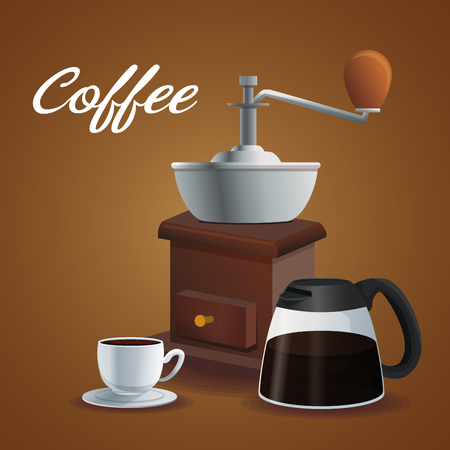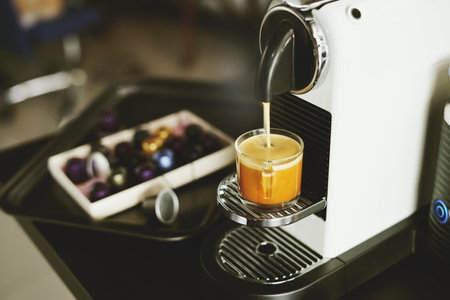Brewing Through the Ages: A British Perspective
The United Kingdom’s longstanding affair with both coffee and tea is deeply woven into its cultural fabric, serving as a testament to how time, taste, and tradition intersect in daily life. The ritual of brewing—whether by hand or with the aid of modern machinery—has been shaped by centuries of evolving preferences and technological advancements. In the early days, brewing was a manual art form, with British households perfecting the use of teapots, cafetières, and stovetop kettles. These methods not only dictated the flavours extracted but also fostered communal moments, from afternoon teas to lively conversations in bustling coffeehouses. Over generations, such practices became quintessentially British, reflecting values of patience, precision, and sociability. As we explore the historical evolution of brewing in the UK, it becomes clear that traditional methods have not only influenced beverage quality but also played a pivotal role in defining social rituals and national identity.
2. Manual Brewing: Ritual, Skill, and Community
Manual brewing holds a special place in the heart of British coffee culture, transcending mere beverage preparation to become a cherished ritual. Whether it’s the pour-over dripper in a London café or the French press on a country kitchen table, these methods are deeply woven into the fabric of daily life. The process invites patience and mindfulness—qualities that resonate with the British appreciation for tradition and craft.
At its core, manual brewing is about more than just making coffee; it’s an act that encourages connection. In homes across the UK, sharing a freshly brewed cup is synonymous with hospitality and warmth. Local cafés, often independent and community-driven, provide spaces where baristas hone their skills and customers engage in meaningful conversations over hand-crafted brews. This social aspect reinforces the communal spirit that underpins much of British society.
The Craftsmanship Behind Manual Brewing
Manual brewing requires skill and attention to detail, from grind size selection to precise pouring techniques. It allows coffee enthusiasts to tailor every variable—water temperature, brew time, agitation—to their personal taste preferences. This hands-on approach aligns with the British value placed on artisanal products and skilled craftsmanship.
| Brewing Method | Key Tools | Typical Flavour Profile | Cultural Context in the UK |
|---|---|---|---|
| French Press (Cafetiere) | Glass/metal carafe, plunger | Rich, full-bodied, robust | Classic home staple; often used during leisurely weekend breakfasts |
| Pourover (V60/Chemex) | Cone dripper, filter paper | Clean, nuanced, aromatic | Favoured by specialty cafés; symbolises modern coffee appreciation |
| AeroPress | Cylinder brewer, paper filter | Smooth, versatile, concentrated | Loved by enthusiasts for experimentation and portability |
| Moka Pot | Stovetop espresso maker | Strong, bold, espresso-like | Popular among those seeking Italian-style intensity at home |
The Social Thread of Manual Brewing
The ritualistic nature of manual brewing fosters conversation and connection—echoing the British tradition of gathering over tea but adapted for the coffee era. Home brewers often share tips and stories online or in local groups, while baristas take pride in demonstrating their technique to curious customers. These exchanges nurture a sense of belonging within both local neighbourhoods and wider coffee communities.

3. Electric Brewing: Convenience Meets Consistency
In recent years, the UK has seen a significant shift towards electric brewing appliances, reflecting evolving lifestyles and changing perceptions around time management. The fast-paced nature of modern British life, particularly on weekday mornings, has positioned electric brewers—ranging from automatic coffee machines to electric kettles—as indispensable kitchen companions. Unlike their manual counterparts, these devices offer unparalleled consistency and speed, providing freshly brewed coffee or tea at the touch of a button. For many Britons navigating demanding work schedules, school runs, or simply seeking a hassle-free start to their day, this reliability is invaluable.
Electric brewing technology has also democratised access to high-quality beverages. With intuitive controls and programmable settings, even novice users can achieve barista-level results at home. This accessibility appeals not only to young professionals in urban flats but also to families and older generations looking for convenience without sacrificing taste. The rapid adoption of pod-based systems and advanced drip machines in British households underscores a broader cultural embrace of efficiency.
Yet, the impact of electric brewing extends beyond mere convenience; it subtly shapes the UK’s collective coffee and tea experience. The ritualistic aspect of preparing a morning brew may be streamlined, but the anticipation of that first sip remains intact. Moreover, as environmental awareness grows, manufacturers are responding with energy-efficient models and recyclable pods, aligning with the values of eco-conscious consumers.
Ultimately, electric brewing appliances have redefined daily routines across the UK, making quality beverages more accessible than ever before while preserving key elements of tradition—namely, the comfort found in a well-crafted cup.
4. Savouring Flavours: Taste Profiles Across Techniques
The UK’s long-standing love affair with coffee is as much about flavour as it is about ritual. When comparing manual and electric brewing methods, the resulting cup profiles tell a story of tradition meeting innovation. Manual techniques—such as pour-over, cafetière (French press), and AeroPress—offer greater control over variables like water temperature, brew time, and agitation. This hands-on approach allows for nuanced extraction, highlighting delicate notes in classic British blends, such as nutty undertones and gentle citrus often found in breakfast coffees.
Electric brewers, including automatic drip machines and pod systems, cater to convenience while delivering consistent results. While they may not provide the same tactile engagement as manual methods, advances in technology have improved their ability to replicate complex flavour profiles. However, aficionados note that electric brews can sometimes mute the layered subtleties prized in traditional blends—particularly those designed to complement milk or a spot of cream, a hallmark of British coffee culture.
A Sensory Comparison
| Brewing Method | Body | Acidity | Flavour Clarity | Consistency |
|---|---|---|---|---|
| Manual (Pour-Over/Cafetière) | Medium to Full | Lively, Bright | High – Distinct Notes Present | Variable – User Dependent |
| Electric (Drip/Pod Machine) | Light to Medium | Smooth, Subdued | Moderate – Blended Flavours | High – Consistent Cup Each Time |
Classic British Blend Preferences
Across the UK, traditional blends such as Breakfast and After Dinner are often enjoyed for their robust yet balanced profiles. Manual methods tend to enhance these characteristics by amplifying malty bases and accentuating floral top notes—a preferred style among purists. Conversely, electric brewing leans towards a smoother cup with rounded edges, making it ideal for drinkers who favour ease without sacrificing too much depth.
The Subtle Impact on Tradition
The choice between manual and electric brewing subtly shapes how Britons experience coffee’s heritage. While modern lifestyles increasingly favour electric options for speed and simplicity, manual techniques keep the sensory connection to tradition alive—encouraging slower enjoyment and a deeper appreciation for each cup’s complexity.
5. Sustainability and the British Brew
Across the UK, sustainability has become an integral part of the brewing conversation, shaping choices from the humble home kitchen to bustling urban cafés. The British public, renowned for its appreciation of both tradition and innovation, increasingly scrutinises the environmental impact of their daily brew. This concern aligns with core British values—pragmatism, stewardship of the countryside, and a deep respect for local communities.
Household Habits: Conscious Consumption
At home, many Britons are re-evaluating their brewing routines through a sustainable lens. Manual methods such as pour-over or French press, which require minimal electricity and produce little waste, resonate strongly with those keen on reducing their carbon footprint. Compostable coffee grounds, reusable filters, and locally roasted beans are now preferred by households determined to support local supply chains and cut down on single-use plastics.
Café Operations: Leading by Example
On the high street, independent cafés and larger chains alike recognise the value of sustainability—not just as an ethical imperative but as a competitive advantage. Many establishments have shifted towards energy-efficient electric brewers with programmable settings to minimise power usage during off-peak hours. Others prioritise direct trade relationships with coffee producers, transparent sourcing, and initiatives like cup-sharing schemes that encourage customers to bring their own mugs.
Alignment with British Values
This move towards greener brewing is not simply about environmental compliance; it reflects a wider societal commitment to fairness, accountability, and community well-being. For many Britons, choosing manual over electric—or vice versa—is less about convenience or taste alone and more about how each method fits within a broader ethos of responsibility. Whether opting for time-honoured rituals or embracing modern efficiencies, the UK’s brewing culture demonstrates that sustainability is now as much a part of the national identity as the morning cuppa itself.
6. Tradition in Transition: What’s Next for UK Brewing Culture?
The UK’s brewing culture stands at a fascinating crossroads, where centuries-old traditions intersect with technological advancement and new consumer expectations. As both manual and electric brewing methods gain popularity, the question arises: how will these influences shape the future of British coffee and tea rituals?
Embracing Innovation Without Losing Heritage
Emerging trends suggest a dynamic blending of heritage and modernity. Artisanal roasters and speciality cafés are championing manual methods—such as pour-over, AeroPress, and siphon brewing—not only for their nuanced extraction profiles but also for their ability to create a personal connection between barista and customer. Simultaneously, the rapid adoption of precision-driven electric brewers brings consistency and efficiency, catering to fast-paced urban lifestyles without compromising on flavour integrity.
Technology Meets Tradition
The integration of smart technology is revolutionising home brewing. UK consumers increasingly adopt app-controlled kettles, grinders with programmable profiles, and even AI-assisted machines that analyse variables like grind size, water temperature, and extraction time. This marriage of data-driven brewing with traditional sensibilities allows enthusiasts to replicate café-quality results at home while experimenting with local beans and blends.
Sustainability and Localism
Another pivotal trend is the focus on sustainability. Eco-conscious Britons are seeking out reusable filters, energy-efficient equipment, and locally roasted beans to reduce their carbon footprint. This movement dovetails with a broader resurgence of interest in British-grown ingredients—such as Kentish hops or English-grown coffee projects—offering a sense of place and pride in every cup.
The Evolving Ritual
Looking ahead, the UK’s brewing rituals are set to become more inclusive and experimental. Communal experiences—like cupping events or interactive brewing workshops—are fostering a deeper appreciation for both manual craftsmanship and high-tech innovation. As generational tastes shift, expect a richer tapestry of brewing styles, from classic afternoon teas using family heirloom teapots to avant-garde coffee bars leveraging cutting-edge automation.
Ultimately, the UK’s future brewing culture will not be defined by a single method or philosophy. Instead, it will celebrate diversity—honouring time-tested traditions while embracing the possibilities of modern science. Whether you savour the slow ritual of hand-poured tea or the precision of an electric brewer, one thing remains certain: Britain’s love affair with its brews is set to endure, adapt, and inspire for generations to come.


